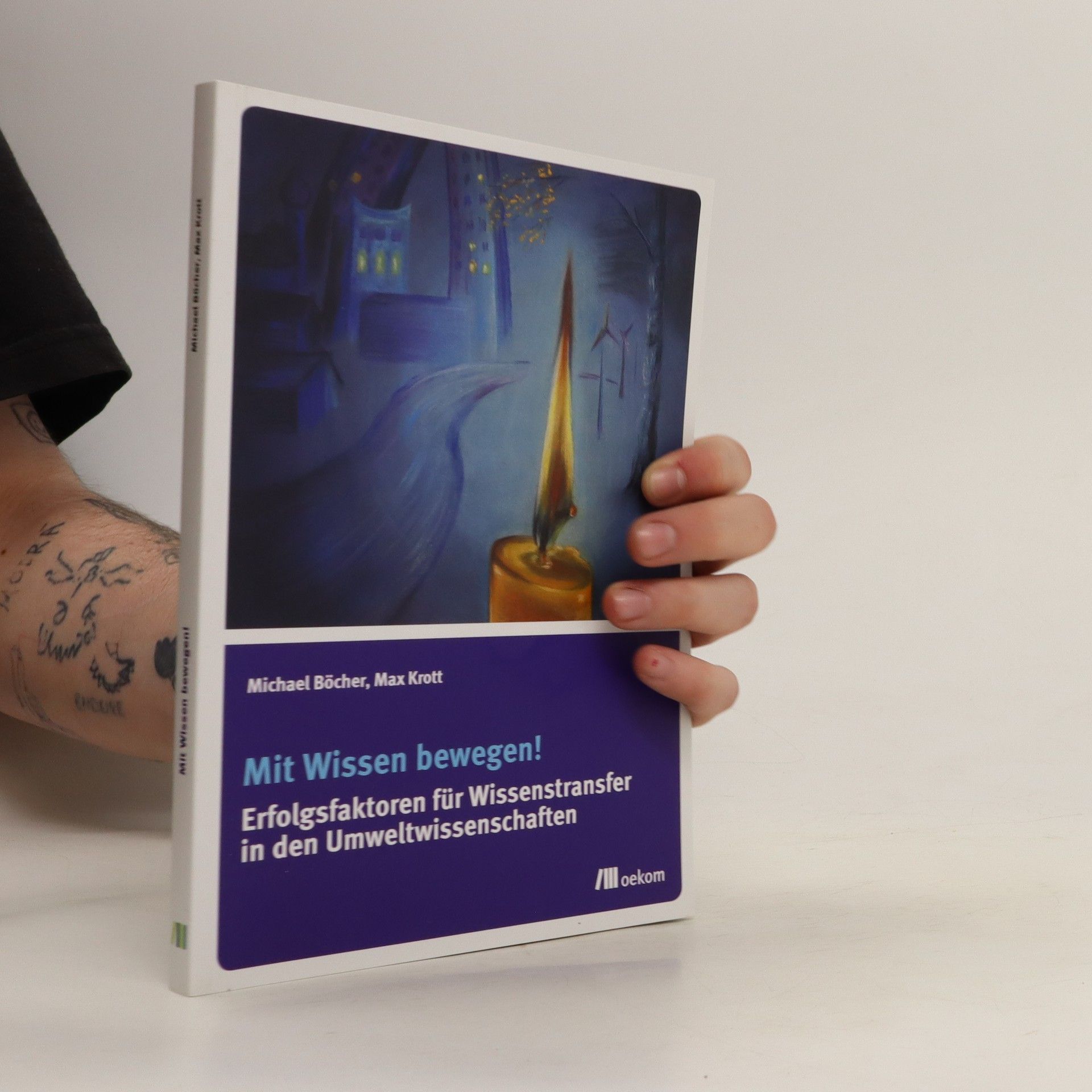Mit Wissen bewegen!
- 214 pages
- 8 hours of reading
So kann erfolgreicher Wissenstransfer aus den Umweltwissenschaften aussehen: Im Pinzgau arbeiten BürgerInnen mit Forschenden an einer langfristigen Strategie zur Regionalentwicklung. In der Region Schladming verändert die Seilbahnwirtschaft ihre Haltung zum Klimawandel aufgrund wissenschaftlicher Erkenntnisse. Die Stadt Wien nimmt als Konsequenz eines Forschungsprojektes die stadtnahe Landwirtschaft bei der Stadtentwicklung stärker wahr. Die Autoren beschreiben diese und vier weitere Erfolgsfälle aus Österreich und zeigen, wie Wissenstransferprozesse exzellente Forschung mit der Praxis verbinden. Dabei können wichtige BündnispartnerInnen helfen, dass wissenschaftliches Wissen vor Ort ankommt. Neben den Praxisbeispielen enthält das Buch eine Checkliste für erfolgreichen Wissenstransfer, die Forschende und PraktikerInnen darin unterstützen kann, Transferprozesse einzuschätzen und zu verbessern. Die Fallanalysen und die Checkliste beruhen auf einem neuen Wissenstransfermodell, das in einem abschließenden Kapitel vorgestellt wird
